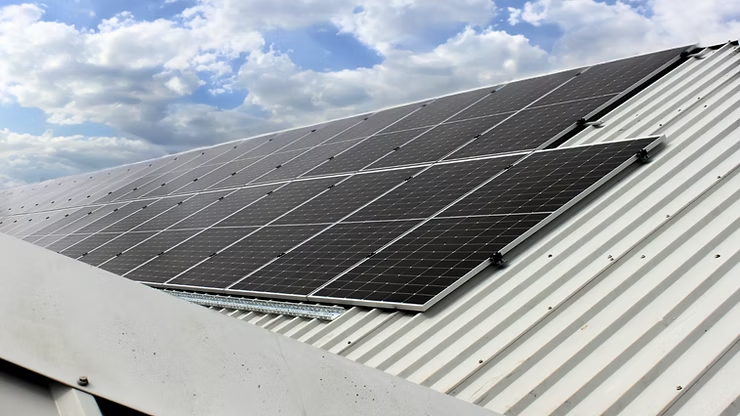Solar panels have become a sign of hope in a world that is dealing with the important problem of climate change. These smooth, shiny surfaces are not only common in modern architecture; they are also useful tools in the fight against global warming. As an environmental journalist, I’m especially interested in getting the word out about how solar panels can help lower carbon emissions and make the future more sustainable.
Photovoltaic (PV) or solar panels turn sunlight directly into electricity. They can make electricity by catching photons from the sun. Using fossil fuels for energy releases harmful CO₂ into the air. Solar panels, on the other hand, make clean, renewable energy without putting greenhouse gases into the air.
One of the best reasons to switch to solar energy is that it could cut down on the amount of carbon we put into the air. Coal, oil, and natural gas are all used a lot in traditional energy generation. These fuels all release a lot of carbon dioxide. Solar panels, on the other hand, make electricity with very little carbon emissions. Using solar energy instead of fossil fuels cuts down on CO₂ emissions by a lot.

A typical solar panel system for a home can cut down on about 3–4 tonnes of CO2 each year. This means that over the course of 25 years, there will be 75–100 tonnes less CO₂ in the air. Using solar energy can have the same effect as taking a lot of cars off the road, since an average car releases about 4.6 tonnes of CO₂ every year.
Not only do solar panels cut down on CO₂ emissions, but they also have other benefits. Solar energy also cuts down on other pollutants that come from burning fossil fuels, like nitrogen oxides (NOx) and sulphur dioxide (SO2), which cause respiratory problems and air pollution. Solar energy also helps protect natural resources by saving water and reducing the damage to habitats that mining and drilling cause.
Solar panels are good for the environment, the economy, and society. Solar technology is becoming a more affordable and easy-to-use energy source for homes and businesses. This action not only saves money on energy costs, but it also opens up job opportunities in the renewable energy sector, which helps the economy grow and stay strong.
Installing solar panels is no longer a choice; it’s a necessity as the effects of climate change get worse. Putting money into solar energy is a big step towards lowering our carbon footprint and keeping the environment safe for future generations. It gives people, businesses, and governments a way to help make the energy future more sustainable and resilient.
Solar panels have a lot of benefits, but the most important one is that they cut down on carbon. They are a clean, renewable, and cheaper source of energy that can help a lot with the bad effects of climate change. Using solar technology is a big step towards caring for the environment, and we can all work together to use the sun’s energy to make the world a better place.
If you are interested in a complimentary solar feasibility consultation, please contact us at by emailing at
or calling us on 01925 551516.


